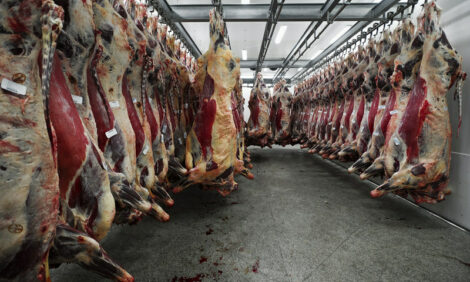



CFO Regulations Increase Nutrient Mgt Importance
US - Indiana's impending revised regulations for confined feeding operations (CFO) and nutrient application have put an even greater emphasis on nutrient management in the state, says Purdue Extension dairy specialist Tamilee Nennich.The new regulations take effect July 1 and apply to both medium- and large-scale operations.
"Some of the new things producers need to pay attention to include requirements for manure application rates that will be based on soil phosphorus levels," Ms Nennich said. "Producers need to do soil tests to determine phosphorus levels."
The updated regulations state that soil phosphorus levels on cropland where manure will be applied cannot exceed 200 parts per million, as opposed to old rules that were based on the nitrogen needs of the next planted crop. A seven-year phase-in period is included to provide producers a chance to adjust to the new soil phosphorus application standard.
Another change producers need to be aware of involves the application of manure to frozen or snow-covered soils.
"The requirements state that applying manure to frozen or snow-covered ground is no longer going to be allowed for most operations," Ms Nennich said.
The only exceptions will be in cases of emergency or for older, medium-sized farms originally permitted with only 120 days of manure storage capacity.
Beginning with new farms, CFOs will be required to have 180 days of manure storage capacity.
For both larger operations affected by the new rules and smaller livestock farms, Nennich emphasized the importance of keeping records of all manure management and application activities.
"Detailed records are really important for operations of all sizes," she said. "When it comes down to it, nutrient management records are really the only way producers can prove that they are making an effort to protect the environment. It's really hard to tell how many nutrients have been applied after the fact, so maintaining good records, knowing what the nutrient sources were and how much was applied is really the only way producers can prove that they were trying to do the right thing."
To help producers keep better records, Ms Nennich, Purdue Extension, the Indiana Corn Marketing Council and the Indiana Soybean Alliance will once again offer free nutrient management recordkeeping calendars.
"If producers keep the records that appear in the calendar each month, they'll have a pretty complete set of records," she said. "There also are some notes included to remind producers of additional things they should be doing. The calendar can serve as a reminder to keep the records that are required for an operation."
Print versions of the calendars are available by contacting Nennich at 765-494-4823 or [email protected]
University of Nebraska Extension recently adopted the calendars, and the Environmental Protection Agency now has similar calendars available for free download here .


